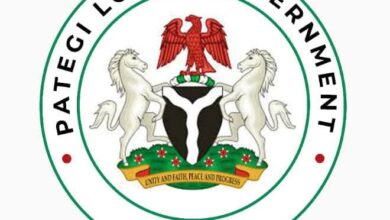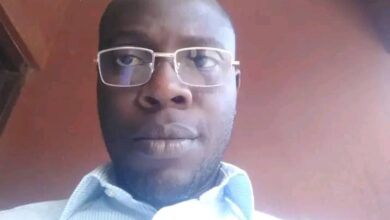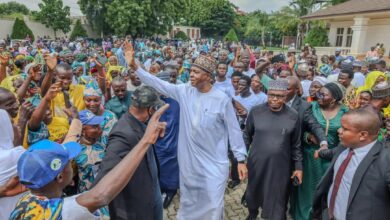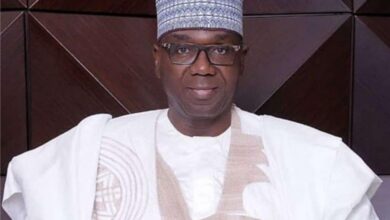
By Comrade Tosin Joseph
The 2023 general elections has been described, by many political analysts, as a very crucial one to the destiny of Nigeria, as we seek turn around the nation’s socio-economic fortunes for the better. As a matter of fact, many believe that the forthcoming general election will either make or mar Nigeria, no thanks to the current downturn in the economy, and tension in parts of the country, bothering on secessionist agitation, pursued through violence. One cannot help but agree with them. But the questions begging for answer are, do Nigerians, especially the youths, know that if another mistake is made, we would have to wait for another four years to right the wrong? What are the advocates of the so-called Not-Too-Young-To-Run doing with over seventy-year old candidates?
The #Endsars protest has shown the world, that the youths in this country have the clout to change things for the better, if only they could organise themselves politically. It triggered a kind consciousness that they have the number. Just the willingness that needs to be sustained, albeit, diplomatically, using the 2023 general election as an avenue to make a statement.
The advocacy for an extensive youths political participation is commendable, is an idea which time has come. We need more youths at the forefront of governance and decision-making. Of course, everything revolves around politics and for us to get it right, we must get the former right first.
Despite making up more than half of the population in many countries, young people often find themselves marginalized from the mainstream politics and decision making. They struggle to gain the respect of public officials and are seen as lacking the skills and experience to engage in politics and governance, such that, it leads to positive changes in the society. This exclusion, coupled with limited educational and economic opportunities, has left many youths idle and frustrated with the established order, thereby making them willing tools in the hands of agents of destructions.
Today’s youths need real opportunities to participate in political processes and contribute to practical solutions that advance development. They must however know that nobody (class) willingly relinquishes power, unless they are forced to do so. The only way to force those holding the country’s development by the jugular, through politics of patronage and rent-seeking, is for the youths to get involved in party politics, with their number and out-vote them to irrelevance. When given an opportunity to organize, voice their opinions, and play a meaningful role in political decision-making, young people in this country have consistently demonstrated their willingness and ability to effect positive, and lasting change. They also become more likely to demand and defend democracy, given that it is the process through which they gain access to power. That would as well give them a greater sense of belonging.
As the general election approaches, Nigerians must be ready to choose between making the country better, and accepting selfish, and power-driven politicians who are in government, not for what they can do to better their country, but what they can gain for their pockets. In the interest of the needed reform which the country craves at the moment, it would be myopic for Nigerians to prioritize the inordinate ambitions of politicians to grab and remain in, power, under whatever guise over the priceless opportunity for valuable change.
As patriotic Nigerians, nothing should matter to us more than the absolute enthusiasm to salvage the country, to bring sanity into the system. We also need to ignore every distraction masquerading as political campaign. There is also a need for us (the youths) to be intentional in our quest for a country that works for everyone, irrespective political affiliation, class, creed, age and tribe. This demands that the brilliant among the youths get ready to go through the rigours of walking the talk. They must be forward-looking lots, who have the capacity to deliver in the restoration of the country to its lost glories.
The youths must look beyond the current options of Tinubu, Atiku, Kwankwaso, or even Peter Obi, and all other older political gladiators who have been recycling themselves in our political space, since independence, and are also responsible for the rots in which we find ourselves. If we really want a national redemption, the youths must be prepared to do the hard work of looking beyond the four major contenders who are part of those set of politicians that have gotten us to where we find ourselves today.
By and large, young people MUST WAKE UP AND GET IT RIGHT by channelling their energy, creativity into more political participation. When young people are unwilling to take part in, or denied the opportunity of, an active participation in the political process, a significant portion of the population would have been cut off, from being involved in decisions that affect their lives. A key consequence is the undermining of political system’s representativeness.
To make a difference in the long run, it is essential that young people wake up, and be engaged more, in the political process, so as for them to have a say in formulating today’s and tomorrow’s policies. Politics of inclusion is not only a fundamental political and democratic necessity, but also a crucial ingredient necessary to build a stable and peaceful society. It also helps in developing policies that respond to the specific needs of younger generations, are the future of the country. For young people to be adequately represented in political institutions, processes, and decision-making, they must know their rights and responsibility, and be given the necessary education, and capacity to participate effectively, at all levels.
However, as the participation of youth is reasonable so also is “youth rehabilitation”. A study of unionism at the student level, which often serves as the foundation of leadership, would reveal that, the present-day youths require reformation of thoughts, conceptions, ideologies, beliefs, motivations and actions. The youths in the olden days (some of whom are now guilty of over-stayed their welcome in the political arena), excelled in their own days. They excelled in studies and morality. They had a sense of action and patriotism. They were good ambassadors, even at Students’ Unions level, they contributed immensely to Africa’s political development, which culminates in Independence. In contrast, today, we have youths that have mostly lost a sense of direction; that has failed to exploit all its potentials for good, but sometimes channel it to the wrong ventures. In terms of leadership, we have youths that have no sense of selfless solidarity, loyalty to a cause, and unquestionable integrity. Someone who is looking for a chance to help himself out of Union fund, for instance, cannot be said to be a good model of a Nigerian youth – very unlike the energy which freed Africa from colonialism and imperialism.

All hope should not be lost, as the situation is not beyond redemption yet. Government agencies like the National Orientation Agency, need to be alive to its responsibilities, to kick-start a campaign for national rebirth – something that is akin to etiquette revolution, with a view to de-marketing corruption. The constitution should be amended and reviewed constantly to meet newer challenges with the interest of masses, rather than those of political parties’ forming its fulcrum.
Religious leaders also have a role to play, in promoting the virtue of honesty, integrity, love and hard work at all times, and they also must be seen to be living it. According to John F. Kennedy’s favorite quote, “Ask not for what your country can do for you but what you can do for your country.”
Joseph is a Mass Communication 200 level Student of the Bayero University, Kano Nigeria.





